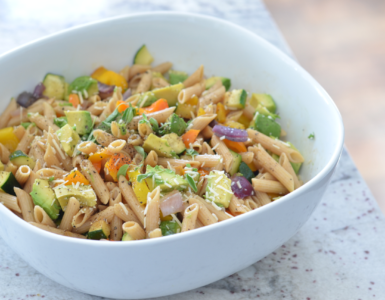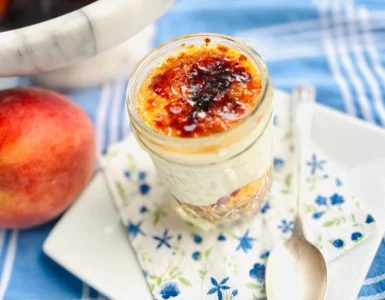Did you know your choice of food affects your sight?
Eat right for your sight!
Liz Weiss, MS, RDN, informs and educates us on the risks and ways to prevent macular degeneration through food. Colorful fruits and vegetables, eggs and seafood, and healthy fats are all good for eye health.
For more recipes and ideas from Liz, you can connect with her on Instagram at @LizWeiss or online at www.lizshealthytable.com.
How What You Eat Affects Your Sight
Macular degeneration is a progressive eye disease that affects the tiny, central part of the retina called the macula at the back of the eye and can cause loss of central vision. It is the leading cause of vision loss in people over 40.
According to the World Health Organization’s (WHO) 2020 World Vision Report, roughly 196 million people globally are known to have macular degeneration.
While the causes of age-related macular degeneration are complex, several of the risk factors are controllable. Smoking, being overweight overall and around the abdomen, and having unchecked cardiovascular disease or high blood pressure all increase a person’s risk for AMD. Long-term exposure to the sun without eye protection is, similarly, a risk factor. Emerging research shows the role of poor diet as well.
How can people reduce their risk?
- Quit smoking — or don’t start
- Get regular physical activity
- Maintain healthy blood pressure and cholesterol levels
- Eat healthy foods, including leafy green vegetables and fish
Certain nutrients can support eye health. Awareness of the role nutrition plays in eye health is growing, with lutein emerging as a star player. Other nutrients that support eye health include omega-3 polyunsaturated fatty acids, beta-carotene, vitamins C and E, zinc, and copper
Lutein is a yellow/brown carotenoid pigment * and in conjuncture with its related antioxidant zeaxanthin (zee-ah-zan-thin), it’s been extensively studied and determined to help delay the onset of cataracts and AMD.
*(carotenoids are plant pigments responsible for bright red, yellow and orange hues in many fruits and vegetables. These pigments play an important role in plant health, and people who eat foods containing carotenoids get protective health benefits as well)
Lutein and zeaxanthin are often found in the same foods. The body can’t manufacture lutein, so it must be consumed in the diet. The standard American diet contains 1 to 3 mg per day of lutein and zeaxanthin, while experts say 6 – 20 mg daily is needed to reduce the risk of AMD. (Supplement formulations may contain 10mg of lutein and 2mg zeaxanthin)
Once consumed, lutein and zeaxanthin are transported in the blood stream and deposited into the retina (especially into the macula); they’re the only carotenoids to do so. High concentrations of lutein and zeaxanthin in the retina absorb up to 90% of blue light, helping protect the macula from damage and maintain optimal vision. There is also evidence that lutein in the macula may improve visual acuity and help protect the eyes from free radical damage with the strongest evidence demonstrating a delay in cataract and AMD onset. (Free radicals are unstable atoms that can damage cells, causing illness and aging. Antioxidants like lutein and zeaxanthin scavenge them up).
Avoid highly processed “junk” foods and foods high in saturated fats. Shift away from the Standard American Diet (SAD diet), which is low in fiber, low in fruits and vegetables, high in animal fat, high in saturated, and high in sugar.
The best food sources of lutein and zeathanin are green veggies such as spinach, kale, broccoli, lettuce, peas, and Swiss chard; egg yolks, corn, and orange bell pepper.
The American Optometric Association recommends meeting needs through food or supplements, but food sources may be better absorbed. Another consideration is that lutein in eggs may be more bioavailable than that in plant sources. Lutein, along with other carotenoids, is best absorbed when consumed with a fat source, so preparing lutein-containing foods with oil, avocado, or nuts and seeds, for example, may increase bioavailability.
Recipes















Add comment